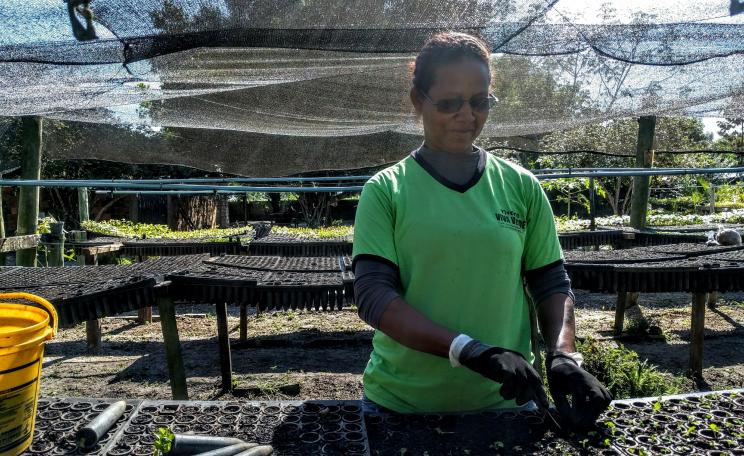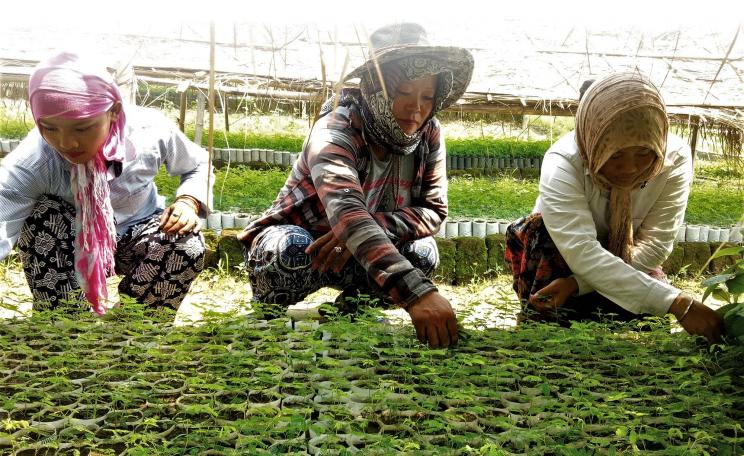-
Our 'green and pleasant land could well become much leafier over the next thirty years, with all five major UK political parties supporting ambitious reforestation plans in their manifestos.
The winning Conservative Party pledged to plant 30 million trees by 2024, while Labour promised 100 million trees per year to 2040, and the Greens 70 million per year by 2030. The Liberal Democrats came in a close third, pledging 60 million new trees every year until 2045, while the SNP set a similar target - 60 million trees a year by 2025.
These ambitious plans to restore the UK’s natural habitat came as concerted international action on the climate emergency faltered. The UN climate talks in Madrid saw 27,000 delegates fail to to reach consensus in many areas, ultimately pushing decisions on pledges and timeframes into 2020.
Deforestation
The stalemate is not helped by the US and China – the world’s biggest economies – leading a small group of nations that are doing little to reduce emissions.
The US is in the process of pulling out of the Paris Agreement, while China has added enough coal-based electricity to power over 30 million homes over the last two years, the equivalent of the EU's entire generating capacity.
Greenhouse gas emissions are rapidly rising at a time when, says the United Nations Environment Programme (UNEP), they must fall nearly 8 per cent a year for the next decade to meet the 1.5°C temperature goal of the landmark 2015 Paris Agreement.
Meanwhile, deforestation across the last decade has been running riot. The 2010s closed with rising deforestation and increased incidences of fire in tropical forests.
According to the UN, in 2015, global forest cover fell below four billion hectares (10 billion acres) for the first time in modern human history.
Banishing negativity
Mounting evidence shows that this flow of negative news does little to drive people to make positive changes in their lives – indeed the opposite is true.
According to researchers in New Zealand, this seemingly endless stream of negative news disempowers people – essentially making them less likely to take action.
The research, published in Global Environmental Change, found that behaviour related to climate change is subject to a wide range of psychological barriers and powerlessness and the “commonsdilemma” appear to be important among these barriers.
The commons dilemma is a specific class of social dilemma in which people's short-term selfish interests are at odds with long-term group interests and the common good.
The authors write: “People who are fatalistic regarding environmental issues are less willing to pay for environmental protection … Those who feel more powerless are less likely to take pro-environmental action."
Opportunities
At Treedom, we believe offering opportunities to individuals to make a modest contribution – such as planting trees – holds the potential to educate and encourage us to get more involved in conservation of our planet.
Engaging individuals in climate action also means changing how we talk about climate change. In April 2006, the cover of TIME magazine told readers: “Be worried. Be VERY worried” about global warming.
How we communicate about climate change hasn’t strayed too far from this. Instead, offering simple, accessible solutions to individuals to make modest changes – such as planting trees – often has much better outcomes.
They have the potential to educate and encourage communities to become more involved in conservation of our planet.
Social impact
Taking positive action beyond tackling the climate emergency, sustainable development must be about more than just planting trees, in the UK or abroad. Every Treedom tree is planted by selected smallholder farmers who rely on agriculture to live.
Customers’ money goes towards supporting these farmers all over the world, until the trees are productive and farmers can eat and sell its fruits.
So far, Treedom has provided food security and additional income for 54,000 farmers in developing countries.
Treedom finances projects in rural communities in the Global South. The first step is the training and financing of the communities involved in the projects, obtaining extraordinary results in terms of their own empowerment. The trees and their fruits belong to the farmers, allowing them to diversify and supplement their income and in some cases to launch micro-entrepreneurship initiatives.
Financing the planting of new trees with Treedom serves to support the trees' care in the first years of their life, when they are not yet productive in terms of fruit. With its tree-planting activities in Asia, Africa, and South America, Treedom contributes to the achievement of ten of the 17 Sustainable Development Goals (SDGs), set out by the United Nations Development Programme to end poverty.
Community action
Buying a tree and supporting communities in need might only be a first small step on the road to nature and humanity’s salvation, but it has the potential to spark a far stronger community movement.
In the spirit of William Blake’s poem evoking England’s “green and pleasant land”, it might eventually banish the “dark satanic mills” of the Industrial Revolution and its aftermath that were responsible for inaugurating the tilt of our planet towards climate emergency.
This Author
Federico Garcea is the co-founder & chief executive of Treedom. Treedom is the only website in the world where you can plant a tree on a smallholder farm and follow its journey with regular online updates for up to 10 years. To date, Treedom has planted more than 920,000 trees across 15 countries on behalf of customers, offsetting more than 295 million kilograms of carbon dioxide (CO2).




